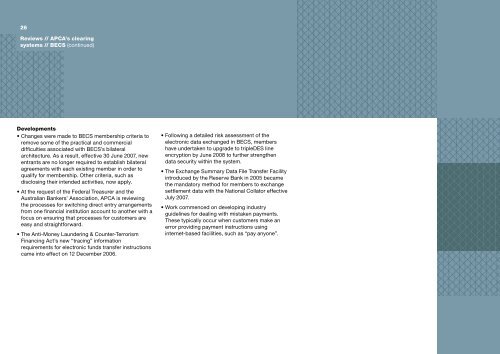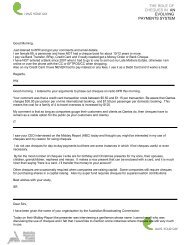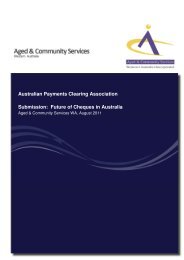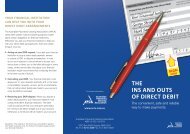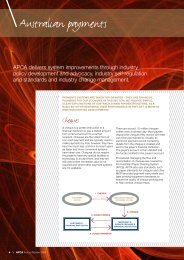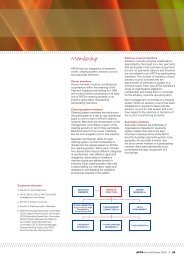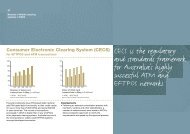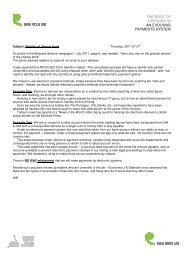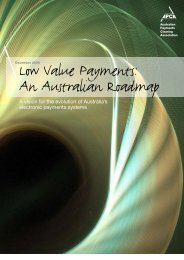Annual Review - Australian Payments Clearing Association
Annual Review - Australian Payments Clearing Association
Annual Review - Australian Payments Clearing Association
Create successful ePaper yourself
Turn your PDF publications into a flip-book with our unique Google optimized e-Paper software.
26<br />
<strong>Review</strong>s // APCA’s clearing<br />
systems // BECS (continued)<br />
Developments<br />
• Changes were made to BECS membership criteria to<br />
remove some of the practical and commercial<br />
difficulties associated with BECS’s bilateral<br />
architecture. As a result, effective 30 June 2007, new<br />
entrants are no longer required to establish bilateral<br />
agreements with each existing member in order to<br />
qualify for membership. Other criteria, such as<br />
disclosing their intended activities, now apply.<br />
• At the request of the Federal Treasurer and the<br />
<strong>Australian</strong> Bankers’ <strong>Association</strong>, APCA is reviewing<br />
the processes for switching direct entry arrangements<br />
from one financial institution account to another with a<br />
focus on ensuring that processes for customers are<br />
easy and straightforward.<br />
• The Anti-Money Laundering & Counter-Terrorism<br />
Financing Act’s new “tracing” information<br />
requirements for electronic funds transfer instructions<br />
came into effect on 12 December 2006.<br />
• Following a detailed risk assessment of the<br />
electronic data exchanged in BECS, members<br />
have undertaken to upgrade to tripleDES line<br />
encryption by June 2008 to further strengthen<br />
data security within the system.<br />
• The Exchange Summary Data File Transfer Facility<br />
introduced by the Reserve Bank in 2005 became<br />
the mandatory method for members to exchange<br />
settlement data with the National Collator effective<br />
July 2007.<br />
• Work commenced on developing industry<br />
guidelines for dealing with mistaken payments.<br />
These typically occur when customers make an<br />
error providing payment instructions using<br />
internet-based facilities, such as “pay anyone”.


